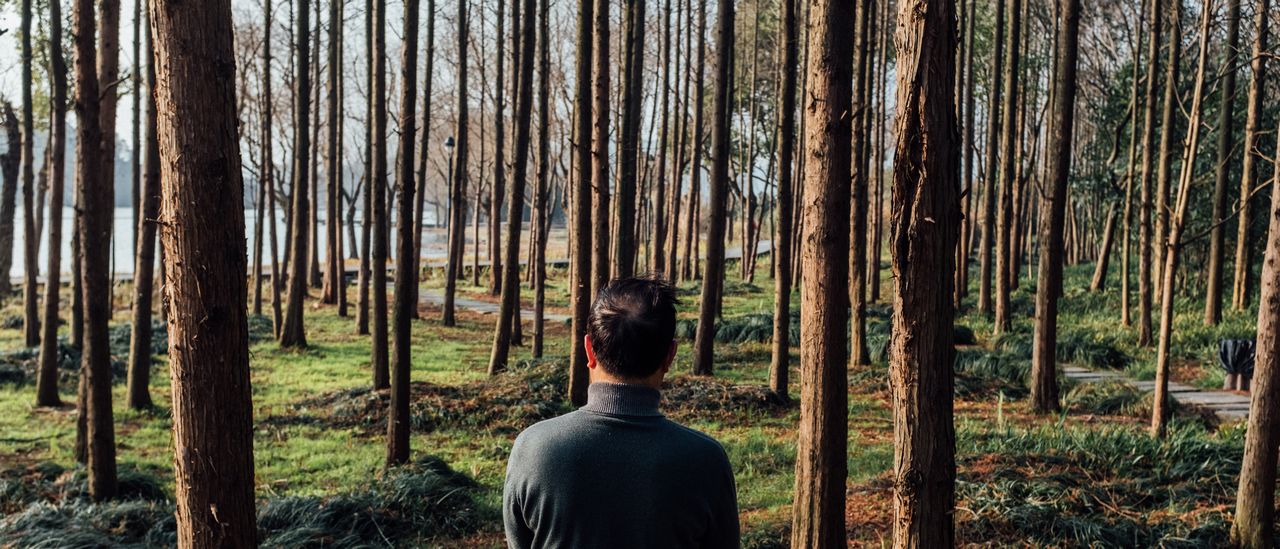They say location, location, location.
While it is true, the location is essential for determining the value of a property, when you buy land for building your new home that's not the only metric you want to consider.
In this article, we'll go through 10 things to check before buying land... and I bet you didn't think of number 6.

If you are a smart buyer, you've been asking yourself what to look for when buying land to build a house.
In some part, that depends a lot on the type of house you want to build.
However, there are a number of questions you always need to answer when you are buying land to build a house later.
Getting these questions answered (always before signing a sales contract) will avoid unpleasant surprises.
With the information you'll gather through this line of questioning, you'll get a good overview of:
- which are your limits for construction on that particular land;
- which are the possible obstacles to the building;
- how much time the construction process would take;
- which additional cost items you should consider.
10 questions to ask when buying land to build a house
1. What's the zoning for the land?
The first question clarify is whether you can build at all on that land.
Zoning defines land use for a particular area.
The municipality usually restricts the areas that can be used for residential buildings.
These are the most common land uses you can find:
- residential;
- commercial;
- tourism activities;
- industrial activities;
- forest & agricultural;
- state land.
Depending on your municipality, there might be more zoning rules and different land uses.
In general, you can build your house only on land with residential use.
This is why it is so important you check this before making any other move.
We'd recommend not to trust the seller on this but to check with your Real-Estate agent or - even better - with a local architect.
2. Is there a detailed plan for the plot?
The detailed plan and design provisions are documents providing the rules for designing and constructing a private house.
The detailed plan defines parameter such as the minimum and maximum size for a house and might also include:
- min and max volume of the house;
- min and max number of floors;
- min and max slope of the roof;
- max height of the house;
- limitations to the shape of the house;
- limitations to the facade type of the house;
- limitations to the color of the house.
As you can see, these parameters will limit the type of house you can build and its size.
It is therefore very important you check these restrictions, especially if you have in mind to build a particular type of house.
In case the plot has neither a valid detailed plan nor design provisions, you cannot be 100% sure they'll allow you to build your home on that land.
Also, in this case, you can expect to have to wait around 1-2 years to be able to start your construction works.
3. Is there any limitation to the building rights?
We are talking of servitudes, clearances, or protected zones that might limit the area you can use for the building.
Servitude is an agreement allowing, for instance, the electricity distribution companies to install cables through the plot thus making construction on and near them impossible.
Clearance mainly stands for the distance between buildings.
The precise definition is a (narrow) street, (narrow) road or passage between buildings.
For instance, in case the distance between buildings is less than 8 meters (about 26 feet... the actual distance varies according to the local building code), a fire-resistant wall must be used at one end of the building facing the other building, which can be rather expensive.
4. Is the access road in good condition?
Building an access road or a long driveway can be very expensive.
For this reason, you want your land to have an existing access road (and in good condition).
You also want to be able to build the house close to the access road, so that the length of your driveway will be kept to a minimum.
Make sure you investigate these aspects before signing an agreement and make sure you factor in your budget the cost of eventual road works.
5. How far are the utilities?
In general, the cost of building utility lines is considerably lower in new residential developments (or in a dense urban environment) than in rural areas.
This is because the developers have usually brought the utility lines to the plot boundary.
You, as the new owner, need to cover the expenses for building the utility lines within the plot.
In rural areas, the main utility lines might be far from your chosen plot and you'd have a lot more digging and developing to do.
Planning and building those connection lines will definitely take some time (from six months to a year) and a considerable amount of time.
Luckily, thanks to the advancement in batteries and photovoltaic technology, today it is pretty easy to go 100% off-grid.
This would allow you to produce your own electricity and get your water from your own well.
Should you want to explore this possibility, you need to make sure the land has good exposure to the sun throughout the year (avoid the north side of hills and mountains) and access to groundwater at reasonable depth (more on this at point 9).
Sidenote: buying land in a rural area with no connection to the utility lines can give you the opportunity to be free of many of the architectural restrictions that apply to residential areas. Also, such lands are usually way cheaper than developed plots located in urban areas.
Of course, you have to factor in the cost of your own well and energy production and the limitations that might come from being entirely off-grid.
In any case, remember not to compromise on the access road!
6. Do you have network coverage?
Besides the utilities, you really want to make sure you have enough signal on your land to be able to use your phone correctly.
This is especially true if you do not have a hi-speed internet line in the area.
When you inspect the land, use your smartphone to make a few video calls and make sure you are happy with the quality of the connection.
Remember: poor network coverage is something you are not going to be able to fix!
7. Are there future plans for the area?
There is nothing worse than being a land with a breathtaking view to find out, only a few years later, that they are going to build apartment buildings right in front of your panoramic window.
This sort of situation is more common than you might think!
Perhaps it is not related to the view, but it could be about the noise or the quality of the air...
Here are a few examples:
- the municipality might decide to build a playground next to your home, or a school;
- a small industrial complex can be developed in close proximity of your land;
- apartment buildings can be developed blocking the sun (or the view) and disturbing your privacy.
Of course, it is nearly impossible to foresee what will happen after 10 years (that's the forecasting limits of most urban plans) but you should make reasonably sure you build in a location that cannot be "attacked" by newer developments.
8. Does the plot have a valid geodetic basic plan?
In addition to the detailed plan or design provision, the geodetic basic plan (topographic map) is among the first documents required by the architect.
It is a coordinate system drawing on which your utility connection project will be made.
If there is no such plan available for the area, you'll be asked to provide one and that will cost you additional money and time.
9. What is the bearing capacity of the soil?
The cost of groundwork depends on the composition of the soil.
To know the composition of the soil, you need to have what's called a "geotechnical report".
The geotechnical report is the output of a geotechnical survey and it shows the composition of the soil at different depths.
Using this information, engineers and excavation companies can make an estimate of the cost of your groundwork and foundations.
For instance, in case your plot is located on limestone, the costs for the foundation will remain relatively low.
At the same time, digging the soil for utilities could be quite expensive.
On the other side of the spectrum, in case the plot is on soft ground with limited load-bearing capacity, the construction of the foundation may be considerably more expensive.
Getting access to the geotechnical report before buying the plot can give your engineer a good idea of the amount of money you should allocate for the groundworks and foundations.
10. do you have enough money to develop that land properly?
Finally, it would be pointless to buy a very expensive land only to build a cheap and small house.
You should know that when selling a property, 90% of the price is given by the size of the house on the property.
If you were to build a small house on valuable land, you'd kill the market value of your property.
Of course, it would always be possible to build a larger house at a later time but, if you were to sell the land with the small house only, it would seriously damage your investment.
As a rule of thumb, the cost of the land should be:
- for urban areas close to big cities, not more than half of your entire construction budget (i.e. land = 200k, house = 200k);
- for urban areas in smaller cities, not more than one-third of your entire budget (i.e. land = 100k, house = 200k);
- for rural areas, not more than one-sixth of your entire budget (i.e. land = 40k, house = 200k).
The figures above are just an example. You should discuss your project in detail with your architect or a qualified consultant.
Conclusion
Shopping for the land where to build your dream home is not an easy task.
You definitely want to have a local architect by your side, who can assist you in investigating the possibilities to develop the plot you are considering to buy.
During the process of selection, you might want to talk to your future neighbors and ask them questions about the noise, safety of the area, and any eventual issue with the location.
Choosing the land for your home is something you most likely will do only once in a lifetime... so make sure you take enough time and you get all the support you need in order to make the right decision.




